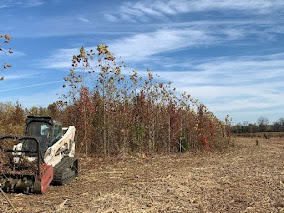 |
| Black carp (U.S. Geological Survey photo) |
Invasive and damaging black carp have established themselves in the Mississippi, Ohio and Illinois rivers, according to a study that is "the first to identify an established population, or one that is naturally reproducing and living to adulthood, anywhere in the U.S.,"
reports Meredith Howard of the
Belleville News-Democrat in Illinois. The study was done by
Southern Illinois University, the
U.S. Geological Survey, the
U.S. Fish and Wildlife Service,
Missouri State University and the Missouri
Department of Conservation.
USGS said the carp “prey on species such as snails and mussels and pose a risk to many already imperiled native mussels in this region.” Howard notes, "Mussels improve water quality by filtering out algae, bacteria and pollutants and they also provide nutrition for other species." The carp, native to east Asia, were imported to control vegetation in Southern fish farms. Senate Majority Leader Mitch McConnell said the recently passed water-resources appropriation expands federal efforts to control Asian carp.
 |
| Alessia Del Val, 4, on a Griffith Park pony. (LAT/Christina House) |
Since 1948, pony rides have been available in Griffith Park in Los Angeles, but under pressure from animal-welfare activists who said (sometimes yelling at children during rides) that the horses were overworked, the city
didn't renew the contract for the petting zoo, which expires Dec. 21. A veterinary inspection "did not show any outright signs of neglect or animal abuse, the expert found some animals were in need of help for saddle sores, as well as hoof and dental care," the
Los Angeles Times reports. "The expert recommended better shelter and amenities, such as easier access to lower water troughs."
Owner Stephen Weeks worried that he wouldn't be able to find homes for more than 30 ponies, but he said he got 50 calls a day, and by Wednesday 25 had homes. Weeks
told the Times the rest will probably go to a sanctuary so they can get medical care, and he chose not to sell any for auction or to another horse-ride business. “Some ponies are obviously capable of working, but as far as commercially working, it’s just my preference,” he said. “They’ve done that, and now they should experience something new in life, less work. ... It's almost like saying goodbye to a family pet.”
 |
| Photo from The Notebook by Poplar Terrace and Friends |
Bradford pear trees were once a popular landscape planting, but they turned out to have several problems, including being invasive and hurting other species. It got so bad in Kentucky that the
University of Kentucky is offering
a bounty (seedlings of better species) for proof of destruction of Bradfords, a cultivar of the callery pear. In Louisville, "Bradford pears were aggressively growing into a field of white flowering trees on River Road, resulting in the destruction of the much-needed native species and the surrounding forest land," so they were removed, local philanthropist Christy Brown
reports in her latest Poplar Terrace newsletter. "Ultimately, while it may be alarming to see so many trees uprooted, bear in mind that removing invasive species helps protect the biodiversity our River City relies on. In order to protect the resilience of our environment, we must protect the wild lands which enrich our health, culture, and economy."



No comments:
Post a Comment